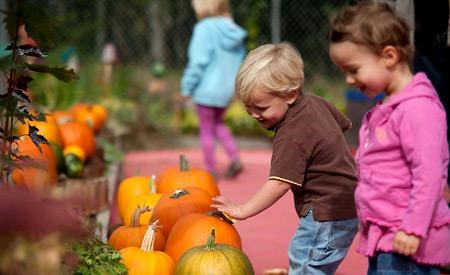by Kierra Jones They arrived knowing little English, unable to communicate with the surrounding community. They were immigrants with a twist. Instead of coming from a foreign country, the influx of people who moved to Powell River in the late 1960s and early 1970s were from French-speaking Quebec.
The Francophones of Powell River have a rich history, explained Club Bon Accueil historian Rhea Zajac-Beauchesne, and the club has played a monumental part in it.
The club, whose name means “good welcome” was started in 1967 by the wives of French-Canadian men who had moved to Powell River to work in the mill. “They just wanted to meet and speak their own language,” explained Zajac-Beauchesne. “They talked, played bingo, exchanged recipes, just did what women do when they meet.”
Soon, membership grew. They began to meet in the back of the Catholic Church, and participated in town-wide celebrations such as the Festival of Nations.
Years passed and more Francophone families journeyed from Eastern Canada.
Accounts in a book published for the club’s 40th anniversary tell arduous travel stories. One woman travelled with a friend and their combined 10 children all the way to Vancouver by train, to be refused a hotel. Only the interference of a good samaritan saved the day. Another woman arrived in Vancouver and tried to find directions to Texada, only to learn that nobody knew how to get there.
In 1977, the members decided by vote to join the provincial organization, la Fédération des Franco-Columbiens. For the first time, men and children were allowed to join the local club.
According to Zajac-Beauchesne, the club next fought a battle over many years to have a place where their children could be taught in French. The first manifestation of this was the Programme Cadre which started in 1979. It was the ninth of its kind in the province. This would later develop into L’école Côte-du-soleil, which now has over 100 students.
In 1982, a preschool called la Picotine was started, with 30 children registered.
The battle for education was put on hold temporarily, however, when the club began working toward a new meeting house. The project was massive, but the club managed to find a lot and build a clubhouse on volunteer labour all in a few months. In 1985, the clubhouse on Manson Avenue was officially finished.
Now though, the club was left with a pile of debt. “They did fundraisers like you wouldn’t believe,” said Zajac-Beauchesne. “They did pancake breakfasts every Sunday morning, and they did lots of catering at the club.” The women also held yearly craft bazaars, she added.
By 1991, their hard work had literally paid off. “They had a big party and they burned the mortgage paper because they were paid in full,” said Zajac-Beauchesne. “That’s unbelievable.”
In recent years, after a grand celebration of the club’s 40th anniversary in 2007, members of Club Bon Accueil have been working on improvements to the clubhouse. These include a weaving room, a community garden, a canteen, and a system of trails in the forest behind the clubhouse, complete with a covered bridge.
Today, the club serves as a centre for French culture in the area. “As far as French goes, you want to keep your culture, you want to keep your language,” said Zajac-Beauchesne. “The club is important because that’s where it happens.”
The club has both French and Spanish classes during the year, as well as activities and workshops such as pottery and flower arranging that people can attend. The clubhouse also offers a library of more than 2,000 French books and films.
Most of all, Zajac-Beauchesne is proud that the club has remained strong throughout the years, unlike other French clubs in the province that go through periods of inactivity. “We’re very proud of the people who started it and kept it going,” she explained. “It’s a good, dedicated bunch that did the work.”
And of course, there are the festivals. In addition to the traditional French-Canadian celebration of Saint Jean-Baptiste, the club also celebrates a festival of its own making, the Salmon Festival.
This year’s event, which will be the fourth of its kind, takes place Saturday, September 28 from noon until 11:30 pm at the clubhouse, 5110 Manson. The day is dedicated to family-friendly activities, including a treasure hunt in the newly-built trails and a pumpkin carving contest.
Entertainment troupe Fanny Starchild will be in attendance, making balloon animals, painting faces, and teaching people how to drum. Later, the clowns will perform music on stage.
The event will also be host to a traditional salmon barbecue. French-Canadian food such as tourtières and salmon pie will be served in the canteen.
The Laughing Oyster will once again be providing a French-Canadian style dinner. Afterwards will be a musical performance by the Buddy Holly Show.
For the first time ever, the festival will become a two-day event with a brunch hosted at Julies Airport Market on Sunday, September 29, where a photo slideshow of the festival in past years will be played.
Day activities are free to attend, but meals and performances require tickets. Those wanting to attend can purchase tickets at Club Bon Accueil, or phone the club at 604.483.3966.
Zajac-Beauchesne wanted to emphasize that the event isn’t just for club members. “As far as Powell River as a whole, we welcome anyone who is interested in learning about French culture,” she said.



